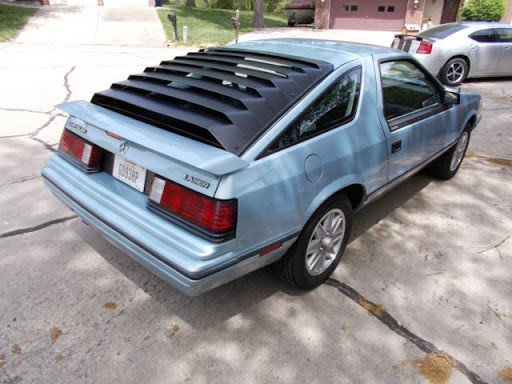How to Maintain Your Car

My first car was a 1986 Dodge Daytona purchased in June 1989. My grandmother gave me a loan for the car. It was ice blue metallic in color, with a 2.2 turbo engine. I bought it prior to relocating from upstate NY to Nova Scotia, Canada, where I was to start my first job as pastor of Sandford Wesleyan Church. It was all fancy shmancy going to my first job. Because the owner had left the car sitting unused for a while it needed new front brakes, which I did not discover until after I had purchased the car.
No one taught me how to maintain a car. My dad was a commercial electrician, but when it came to teaching his boys basic skills he was not that much interested. Over these 30+ years I have learned to maintain my car. I am not afraid to ask questions or ask for help from others, which has resulted in my learning how to change my oil, brake pads, changing out a starter with a bit of help from a friend. You will be able to do the same if you take seriously the ownership of a car.
Here are 10 things to remember or do when maintaining your vehicle, that will help it to last longer and secure the best resale price.
1. Begin by keeping a log of car repairs. I either use the manual supplied by the manufacturer or simply add a sheet of paper and store it inside the car manuals in the glove box. Whenever I have work done, I record the date, the mileage, and what I did. That keeps me up to date on all maintenance. And, when you ever sell the car, you will be able to show the prospective buyer everything you’ve done to the car.
2. Wash the car regularly and detail the inside often. I have detailed professionally probably 100 more cars. I cannot emphasize enough this aspect of maintenance. I use a 1-year wax. And between those waxes I use a spray on/wipe off wax that lasts a good month or more. Use the vacuum on the carpets and upholstery often. I use a spray foam from Walmart
or Dollar General for my carpets and mats, which helps lift the dirt and deodorizes the mats. I cannot count all the compliments I’ve received over the years because I keep my car detailed. I have never much bothered detailing the engine compartment, by the way. But it cannot hurt. Food consumption while driving is the archenemy of a clean car.
3. Change your oil every 3000 miles. This is the most important regular maintenance you will ever do for your engine. If you cannot do it yourself, take it to a Valvoline or Walmart and get them to do it.
4. Rotate your tires every 6000 miles, or every other oil change. Tires are the only thing between you and the road. So, it helps to buy good tires, and maintain them well. You can rotate your own tires if you have a jack and wrench. I purchased a torque wrench, so I can properly torque my lug nuts. This helps with proper tire wear. Once and a while pay to have your tires rotated, because the shop will usually balance your tires for you, which is necessary again for maintaining good tires. Also, after you have driven 500 miles on your newly rotated tires, be sure to check the lug nuts to ensure they’re still tight, because they could loosen.
5. Check your air filters often. You have two basic filters: the engine air filter and the cabin filter, which is inside your car usually behind your glove box. I have never been good at knowing when to replace the engine air filter. But, the standard rule every 12,000 to 15,000 miles, over every 4th or 5th oil change. If you drive on dusty roads, check it often and change it more often. For your inside cabin filter, check this once a year and change as needed. This is often an overlooked maintenance issue but makes all the difference in how you’re a/c performs.
6. Take extra care maintaining your windshield wipers in the winter months. If you don’t invest in expensive wiper blades (it’s your call), the cheaper blades often car frozen to your windshield on those cold winter mornings. It becomes difficult to loosen the cheaper blades from the windshield without tearing them apart. You may want to resort to lifting your blades from the windshield after your done driving for the day.
7. Check your brakes often. Because most cars are front wheel drive, your front brakes will not last as long as your rear brakes. When you buy your brake pads/shoes, it is important to know how many miles they will last. If you know that, you will know when it’s time to check them for wear and tear. Change out your pads before they start to wear on your rotors, and it will save your rotors from undue wear from over-used brake pads/shoes.
8. Replace your spark plugs regularly, according to the plug manufacturer’s recommendation. You can replace your plugs if you have the right tools. Just be careful you do not break the plug while trying to remover, or you’re in big trouble. Using a torque wrench to tighten them is a plus.
9. Check your battery at least once a year for buildup of corrosion. The corrosion is a white or sometimes bluish-green powdery substance called lead sulfate or anhydrous copper sulfate that accumulates on your terminals. When this substance builds up, it prevents your battery cables from properly conducting electricity, which can lead to other major problems. I use a battery terminal wire brush (pictured here) to remove the sulfate
10. Do not forget renewing insurance, license, and annual registration. You cannot drive without them.

10 Signs Your NonProfit Board May Be The Root Cause Of Your Organizational Dysfunction Part 1 By Duane E. Brown, Ph.D We like to lay blame on the CEO and/or staff for the dysfunction within non-profits. However, the time has come to begin to lay blame at the root of the leadership, or lack of it, by the board of directors. Not one of the following signs may alone be a major issue. Yet, if you see one of these signs I bet you can find many others. Here are 10 signs your nonprofit board is a root cause of your nonprofit's dysfunction. 1 . Constant staff leadership turnover at the top. When your CEOs or executive directors keep leaving for greener pastures, are angry, or burned out, look at the relationship the leaders had with the board. In this root cause, the board is often difficult to please, mired in politicization, micromanaging, or offering an unfair compensation plan. 2. The organization lacks clear vision and a written strategy. If your nonprofit lacks vision and a written strategy that is public, blame the board not the CEO. The board has a major part to play ensuring the CEO has these documents in place and that they are being implemented. These should be regularly communicated to the staff and key aspects of the 3. The CEO is weak or mired in internal conflicts with staff. When you have an ineffective leader at the helm, and s/he continues, the fault lies with the board for choosing the wrong leader or allowing an ineffective leader to continue unchecked. This dysfunction works its way throughout the organization, no matter how large or small. Subordinates quickly exit the toxicity caused by this weak leader. 4. Board members never leave. Board members serving for decades is unhealthy. In rare situations you will find long term board members who are effective in their roles. Boards that don’t make room for new members don’t make room for fresh ideas, new money, and new relationships. 5. Longstanding dysfunctional culture. Boards are responsible for the health of a culture. Their roles is not simply financial. If you have a toxic organizational culture, look first to the board. You will discover a board that is not involved in creating a healthy culture, not holding the CEO responsible for “fixing” the staff culture. Stay tuned for Part 2

Update: I'm now 16+ months into underemployment. So, I've dug deep into my reservoir of courage to be a substitute teacher in the public schools. It's hard work, let me tell you. The experiences have taught me so much, and I am observing first hand what it's like to be a public school teachers. Let's not forget our public school teachers. Let's prop them up with encouragement and prayers every chance we get. Let's volunteer even an hour a week to help them succeed in their roles. My wife, Patty, and daughter, Liz are serving as public school teachers in the Jessamine County Public School systems. Having substituted in the schools where they serve, it has been an eye opening experience as I've learned about the blessings and challenges of serving in public education. Here are five insights: Our kids our precious... the hallways of our schools are filled with precious littles and teens. They are smart, talented, and eager to learn. I am so excited with what I see roaming through the hallways of our public schools. Teachers are givers... these heroes give and give, and give and give, and give and give, and give and give. You get my point. These men and women are constantly giving of their time and energy to the next generation. Teachers are tired... they work long hours, often seven days a week, for the sake of our children. Teachers need those many weeks off in the summer to recuperated. And most don't take off all the time the deserve because they're pouring out to get ready for the next school year. Teachers are heroes ...They possess huge amounts of courage and perseverance every day to tackle the challenges of the public school educational environment. Teachers give our world hope... they're are models to me (and our kids) of hard work. They serve on the front lines of the American workforce. They're changing lives, one student at a time.








